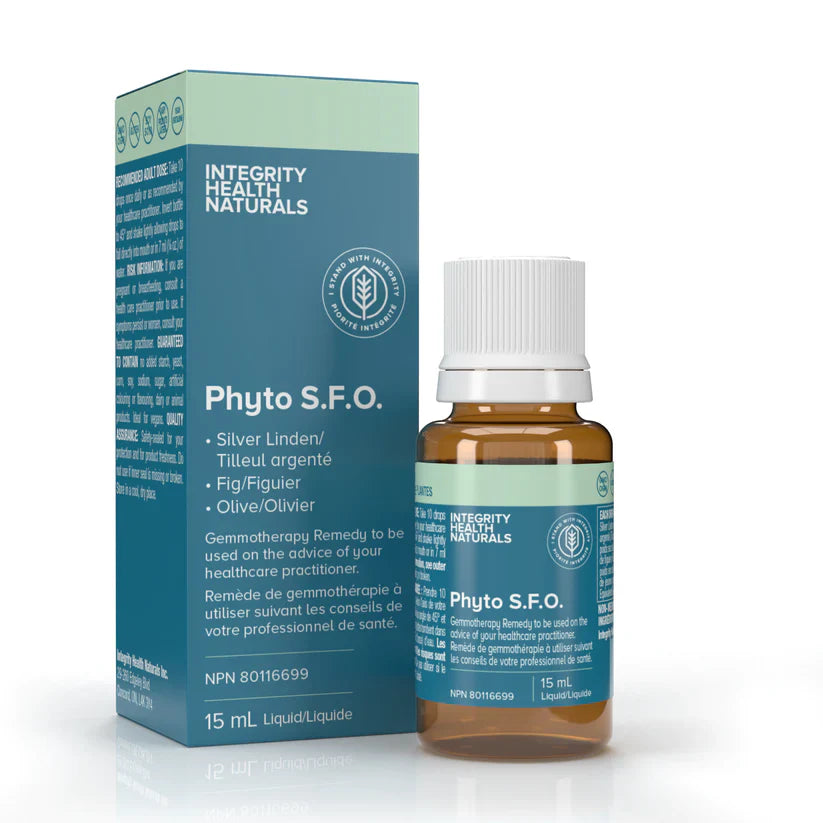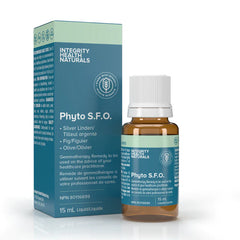

Phyto SFO
- 40.00$
0.00$- 40.00$
- Unit price
- per
Description
x- Silver linden (Tilia tomentosa)
Fig (Ficus carica)
Olive (Olea europaea) - Protection against external aggression in sensitive subjects
This herbal medicine targets the cortical-hypothalamic axis by regulating the endocrine response to emotional dysregulation and psychosomatic symptoms. In doing so, the combinations are considered calming for the nervous system. It is traditionally used for obsessive-compulsive disorder and intestinal spasmophilia. It is particularly effective for emotionally sensitive and fragile individuals.
The fig tree is considered the guardian of digestion. It was traditionally used to help "digest aggression" from outside and regulate dysfunction of the gut-brain axis. Animal studies have shown that fig can reduce the anxiety response. The affinity of fig for the digestive system is evident from recent randomized clinical trials. Fig has been shown to improve functional constipation and has also been suggested as a first-line treatment for irritable bowel syndrome - based on the results of a single-blind randomized controlled trial by Pourmasoumi M., et al (2018).
Silver linden is considered an excellent remedy for the nervous system. It is traditionally used for sleep and somatization, such as anxious gastritis. Silver linden has sedative effects due to volatile oils such as citral, citronellal, citronellol, eugenol, and limonene. For example, Turrini F., et al, (2020) found that silver linden supplementation in mice reduced anxiety-related behavior. Silver linden acts as a GABA and benzodiazepine (BDZ) agonist. It can activate hippocampal GABAergic synapses associated with a sedative and anxiolytic response.
Other animal studies have shown that Tilia tomentosa induces intestinal relaxation through the mediation of nitric oxide pathways.
Olive is traditionally considered a protector of the brain and, by extension, protects nervous tissue, repairing "scars" experienced both physically and psychologically. A protector of the brain, it is an anti-neurotic and anti-sclerotic. On a mental and spiritual level, elm and olive protect emotional subjects from external aggression.
Produits recommandés
Produits récemment consultés
- Choosing a selection results in a full page refresh.


